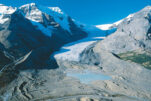Guest Column: Why aren’t berms more popular?
By Medicine Hat News Opinon on July 15, 2019.
In 1953 the Netherlands suffered from a horrendous storm, storm tide, and all-consuming floods. Although the Dutch had always been subjected to flooding, that one was totally unexpected; in severity, loss of life, of humans and animals, damage to superstructure, entire towns, large parts of cities, farms/agriculture – certainly all the areas below sea level that the Dutch had wrested from the sea – the effects on the population’s health and attitudes, the surge in emigration, and their general realization that their vaunted diking systems at which, out of necessity, they had become really proficient at after centuries of trials and errors, was no longer to be relied upon. Perhaps that particular storm, with some other rather unusual natural phenomena, was a very early sign that, yes, this planet’s climate was beginning to change. At that time – except for the warnings from some folks supposedly in the know who were considered somewhat, you know, out to lunch, a bit “challenged” between the ears, so to speak – very few of any consequence, with credibility and international reputation would have thought that, yes, perhaps the world’s climate is changing. After all, there had been climate changes in the distant past, some more recent occurrences of winters unusually cold (eg.the mini ice age of the middle 1800s), and droughts that would last a longer time that were and had covered the earth for many years … like the last ice age. Fossil evidence suggests that areas that are now covered by ice and snow, permafrost, had at one time been lush green valleys and hills. So why wouldn’t/shouldn’t it happen again? Well, the Dutch seemed to have considered that possibility and proceeded to build a dam/diking/sluicing/gate system that they figured ought to be adequate for whatever should come their, and their neighbours’, way, for the next thousand years. So far, it seems to have been as effective as their designers had planned. I figure leave it to the Dutch to design and improve on it to face any rise in ocean levels. The Netherlands was of relatively small size and limited resources but willing and able to spend years of effort and money. This was somewhat similar to Canada – also at that time of limited resources, financially and otherwise and building that trans-continental railway. So what is keeping a country like the U.S., vastly wealthier, larger and full of resources, full of people from all over the world – from building, along its Gulf Coast and beyond, something other than those frequently breached, relatively flimsy levees and instead bulding something similar to the undertaking of the Dutch? One wonders when the people of the U.S., especially folks in New Orleans, along the Gulf, Galveston, all along the Mississippi River,will realize that we can and have done it before. That would be a worthy uniting endeavour, certainly worthier than some wall to keep people out. Why, even our Medicine Hat, rolling up its sleeves, so to speak, had the foresight to build that berm system, hopefully soon to be completed. Whenever I see, on TV, or read in the News, reports of towns, villages, even cities, engulfed in muddy waters, I wonder to myself – simplistically perhaps – why has no one there thought about berms, with removable access gates, high enough for any eventuality, surrounding the entire town, or at least the lower areas of a city? Flat on top, trails perhaps, but making it very possible to raise it, one way or another. Very definitely, it would be an expensive undertaking, but hey, buying up whole neighbourhoods because they are in a flood plain or the costs in mental and physical health, forever rebuilding, replacing, etc., etc., etc. has got to be just as costly, if not moreso. One would think that Winnipeg flood way that has proven to be effective had been very costly too. Costly perhaps, but necessary. Ted Kohlmetz is a retired citizen of Medicine Hat. 9-8




